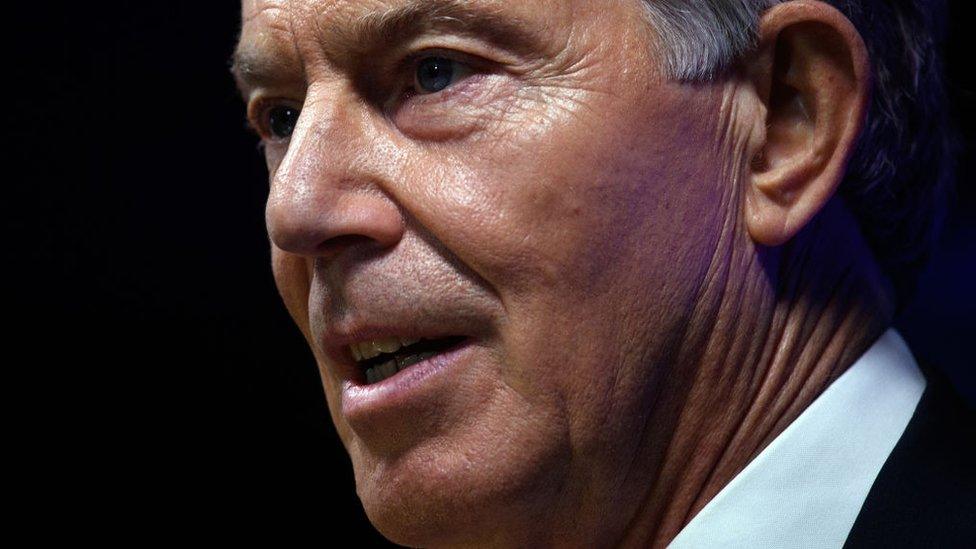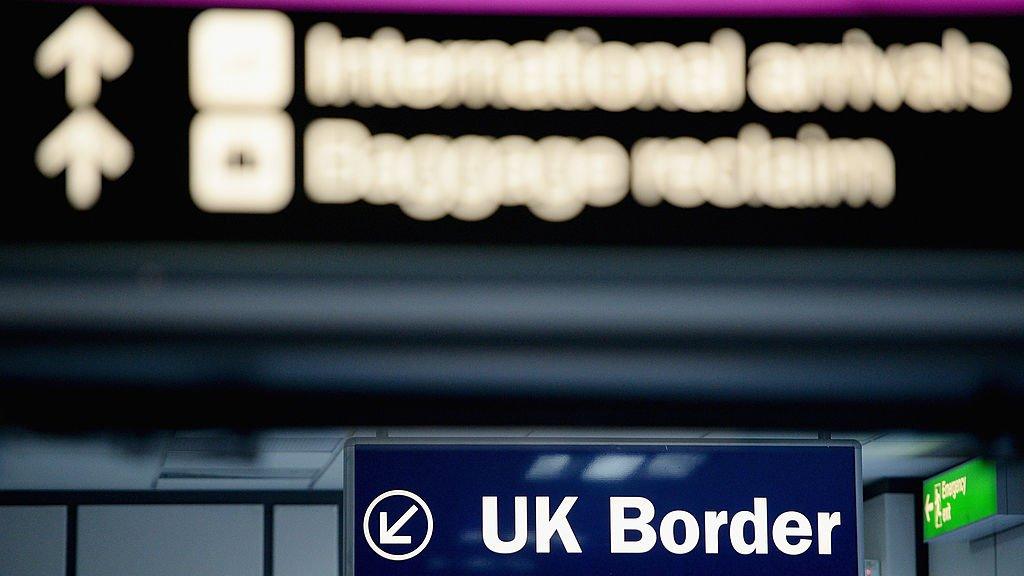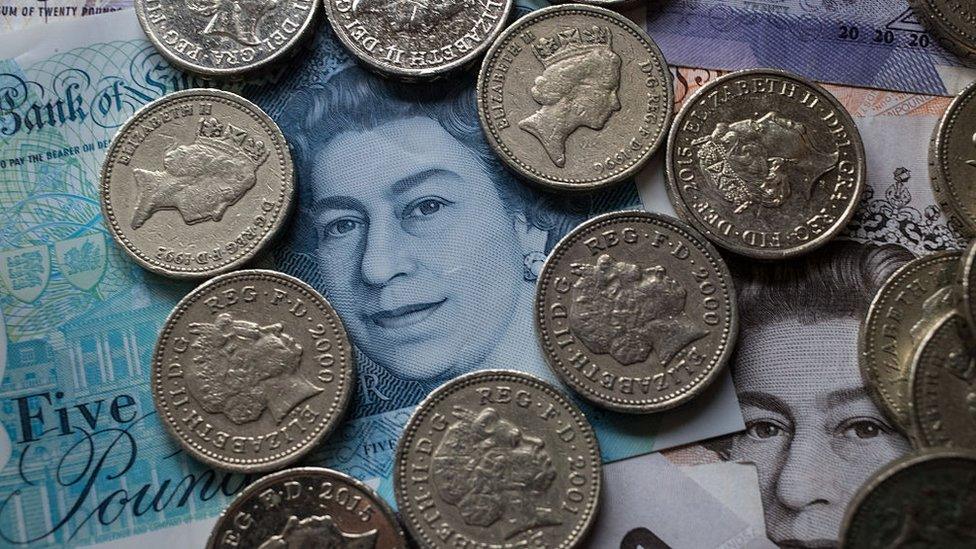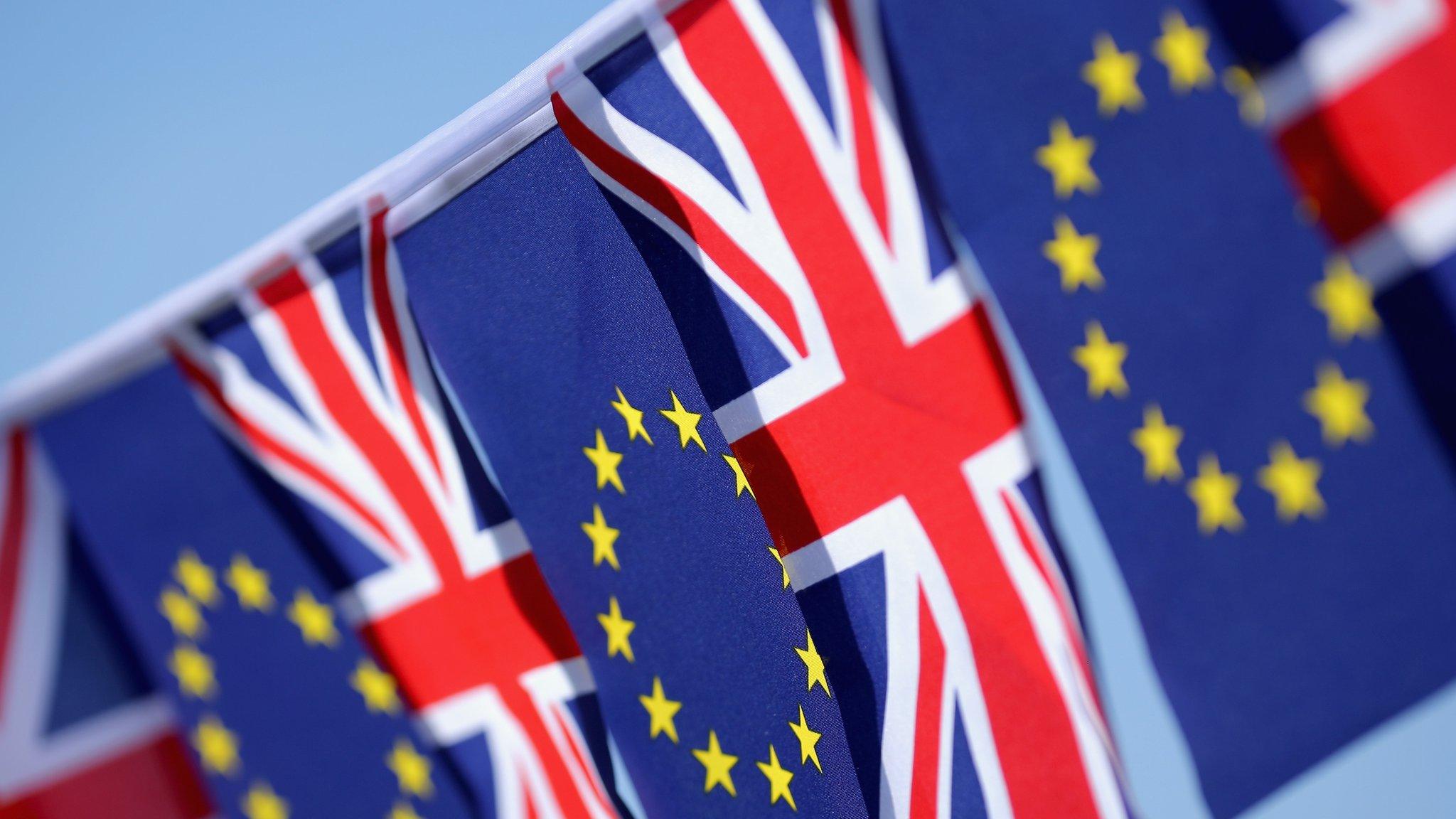Reality Check: Four claims in Tony Blair's speech
- Published

Former Prime Minister Tony Blair has launched a campaign to try to persuade the British people to change their minds about leaving the European Union. It comes just weeks before the government intends to trigger the departure mechanism. In a speech in London, he said that he respected the will of the people, but voters hadn't been given details about the terms on which Britain would exit the EU.

1. "The people voted without knowledge of the true terms of Brexit."
Mr Blair argued that what he called the "cost" of Brexit was only now becoming clear. The referendum vote, he said, was based on "imperfect knowledge" which would now become "informed knowledge".
It's true that we don't yet know the details of the UK's future relationship with the rest of the EU - that will depend on the deal that is negotiated - but lots was said during the referendum campaign about what Brexit would mean in more general terms. In particular, leading figures in both campaigns said leaving the EU would entail leaving the single market.
2. "The practical impact of Brexit on immigration is, on analysis, less than 12% of the immigration total."
Mr Blair suggested that immigration was the main issue that propelled Leave to victory in the referendum campaign. But, he argued, the effect of quitting would probably have only a modest impact on overall immigration levels.
He pointed out that just over half of migration into the UK comes from outside the EU. That's confirmed by official statistics from the ONS. In the year to June 2016 net migration - the difference between the number of people who arrived and the number of people who left - was 196,000 from outside the EU, compared with 189,000 from inside the EU.

The same is true for the gross migration statistics - ie just looking at how many citizens from different parts of the world arrived in the UK.
Again, there were slightly more from outside the EU (289,000) than from inside (284,000) along with a smaller number of British citizens returning to live in the UK (77,000). And only an estimated 82,000 or 12.6% of the 650,000 total were EU citizens who arrived looking for work.
Theresa May has ruled out introducing a points-based migration system but the government hasn't published details of what it does want to implement. If the new system continues to allow in EU migrants with job offers, as well as students and people coming to join spouses, then Mr Blair's 12% would be, broadly speaking, correct.
There could be a bigger impact if the government opts for a capped number of work permits. But about half of total migration will be unaffected no matter what arrangements are made with the EU.
3. "Seven months ago, after the referendum result, the chancellor was telling us that leaving the single market would be - and I quote - catastrophic."
This isn't really a fair quotation. It's a reference to an interview given by Philip Hammond on ITV's Peston on Sunday on 26 June.

Mr Hammond said: "I believe it's essential that we protect our access to the single European market. Whether we like it or not, our economy, over 40 years, has become shaped by that access, and to lose that access now would be catastrophic."
But note that he was talking about access to the single market. That's not the same as membership. You don't have to be a member of the single market to have access to it, although the level of access that Britain would have after leaving the single market would depend on what trade relationship was negotiated.
4. "Our currency is down around 12% against the euro and 20% against the dollar, which is the international financial market's assessment of our future prosperity ie we are going to be poorer. The price of imported goods in the supermarkets is up and thus the cost of living."
It's true that the pound has fallen against the dollar and the euro since the referendum, although not by quite as much as Mr Blair said. It has recovered from its lowest point. Against the dollar, the pound is currently down about 16% compared with its pre-referendum level. Against the euro, it's about 10.5% down.
It's also worth noting that the pound/euro exchange rate was at a similar level to now between 2009 and the middle of 2011, so it's hardly unprecedented. Against the dollar, though, the pound has hit multi-decade lows in recent months.



- Published15 February 2017
